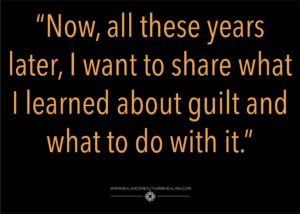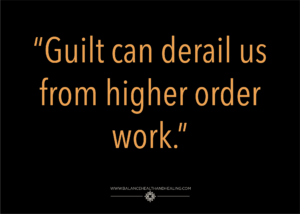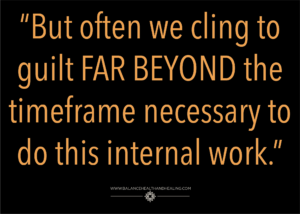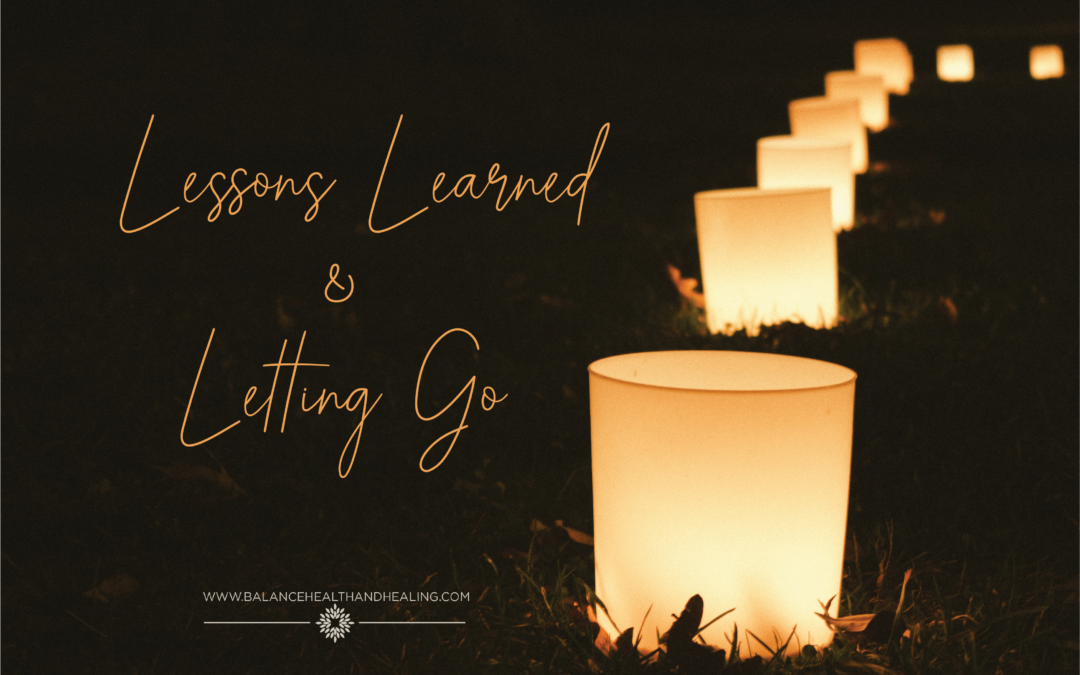Last month (October) is Infant loss awareness month. This is specifically relevant to me as I lost my son to SIDS, seven years ago. Each October 15th, people across the nation, hold a special remembrance for the babies they lost. One way we do this is through a national “Wave of light.” At 7pm, families light a candle in memory of their lost babies and keep the candle lit for an hour. I find the imagery of this “Wave of light” moving across the nation to be very touching. I love lighting a candle for my son and taking time to think of him, while also feeling connected to a greater community of grieving parents.
If you haven’t lost a child, you may think this blog post doesn’t apply to you. Hang in with me; I think you’ll be surprised. I am going to talk about a part of my journey that is very personal and vulnerable while also applicable to so many of us.
I was talking with one of my friends recently about losing our son and we talked for a while on the topic of guilt.
When my son died, I wasn’t just grieving his death. I felt so deeply guilty. I had failed in the most fundamental way as his mother. I hadn’t been able to keep him alive.
For a long time, I tortured myself over what I possibly did, or didn’t do, that led to his death. I’ll spare you the long list of everything I considered that stretched all the way back to in-utero. Needless to say this was an incredibly painful experience for me.
in-utero. Needless to say this was an incredibly painful experience for me.
Now, all these years later, I want to share what I learned about guilt and what to do with it.
1. It was natural for me to feel guilty. My brain craved, indeed, needed, to make sense of my son’s death. It was easier for me to feel guilty and to blame myself, than to tolerate a sense of lack of control in my life. Especially when the cost of that lack of control was so high: my son’s life. Stepping into awareness that there is so much in our life that we can’t control, is a scary prospect. How often do we take on blame in service of this psychological comfort? Because while it may hurt to feel at fault, at least we feel in control.
2. Related to the first point, we have a tendency to take over-responsibility. This isn’t universally the case but for most of the clients I work with, this is absolutely true. When we don’t accurately evaluate responsibility, we take on work that is not ours to own. This only increases our suffering. Honestly, I don’t know how much of my son’s death was my responsibility. But when I look at the situation objectively, there are a million different factors that could’ve been at play. Very helpful feedback that my pediatrician said to me after my son died, was, “We can reduce the risk of SIDS, but we can’t prevent it.” I did everything I could to reduce the risk of my son’s death. But ultimately, despite my best efforts, I couldn’t prevent it.
 3. Guilt can derail us from higher order work. When I sat in the space of feeling guilty, I wasn’t doing the “real” work. Guilt was a form of psychological resistance and took away from the more pure work of grieving for my son. It also took away from the psychological growth offered when we relinquish our illusion of control. When I decided to let go of my illusion of control, my fear increased, but so did my ability to live more present-centered and engaged. Guilt keeps us entrenched in the past, and in that space, there is no real living to be had. Outside of grief, I became acutely aware that the moments of our lives are truly all we have. Here, right now, is all we are guaranteed. I want to be here as much as possible.
3. Guilt can derail us from higher order work. When I sat in the space of feeling guilty, I wasn’t doing the “real” work. Guilt was a form of psychological resistance and took away from the more pure work of grieving for my son. It also took away from the psychological growth offered when we relinquish our illusion of control. When I decided to let go of my illusion of control, my fear increased, but so did my ability to live more present-centered and engaged. Guilt keeps us entrenched in the past, and in that space, there is no real living to be had. Outside of grief, I became acutely aware that the moments of our lives are truly all we have. Here, right now, is all we are guaranteed. I want to be here as much as possible.
4. Guilt suffocated my spirit. Guilt, when it crosses over to shame, has a powerful way of derailing our growth. When we feel so guilty or shameful about things, it stops us from living the lives we want to live. In guilt, I was filled with so many self-defeating thoughts. “How dare I try to have another child when I couldn’t keep my son alive?” “I am so broken; how can I be a good mother?” “How can I ever help my clients again when I am so damaged?”
Depending on what brings us guilt, we can experience even harsher thoughts that include attacks on our character. For example, “You are a horrible human being. You don’t deserve to be happy.”
- As humans, we make mistakes. We mess up. We even hurt each other. Guilt is an adaptive response that can help us re-orient toward our values when we step outside them. Guilt can lead to an adaptive process of introspection, behavior change, and reparation, where possible.
But often we cling to guilt FAR BEYOND the timeframe necessary to do this internal work. Often we use guilt to self-flagellate and punish ourselves. When it moves into this territory, guilt becomes damaging and unhelpful. But we may not see it because we feel we haven’t atoned enough for our shortcomings or wrong-doings.
Questions that can help answer whether you are hanging onto guilt too long include:
- Have I taken ownership of my part in this?
- Am I taking too much ownership for this?
- Have I apologized or corrected the wrong, if possible?
- Do I have increased awareness of what led to this experience so I can do my best to prevent another similar incident?
- Can I recognize my limits and give myself grace for making mistakes?
If the answer to the above questions are yes, then it is time to let guilt go. It has done its job. Now our job is self-forgiveness.
- Self-forgiveness was incredibly powerful for me. This was also incredibly hard for me to get to. My brain kept wanting to ruminate on where my fault lay in his death. Ultimately what helped me shift away from this rumination and self-punishment was the awareness that my son didn’t want me to carry that burden anymore. He didn’t want me to spend my life feeling so guilty for his death. He wanted me to forgive myself and live my life in meaningful ways. This awareness helped me release my guilt.
You may not have a similar circumstance to relate this to. However, other ways we can move toward self-forgiveness include asking ourselves if guilt is really still serving us? Is it helping us live more meaningfully and connected? Did I learn the lessons I needed to learn? Can I accept my humanity and let guilt go? I honestly believe that we need to relinquish guilt to live more connected and meaningful lives. Guilt snuffed out my light, but when I let it go, I was able to re-engage in the vulnerability of truly living.
So now, when I light a candle for my son during the Wave of Light, I can remember him tenderly and without guilt. I also keep my own metaphorical light lit, because I deserve to live fully, embracing my humanity as I go.

